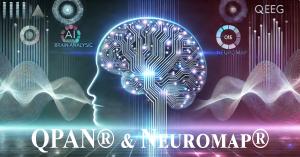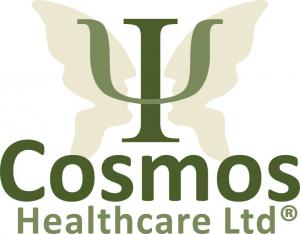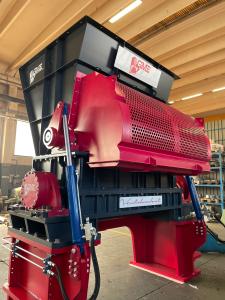
QPAN® & Neuromap® are a breakthrough in personalized brain care, allowing us to create a targeted plan that maximizes each patient’s potential.

Developed by Cosmos Healthcare’s expert team led by Dr. Alptekin Aydin, Neuromap®
The QPAN Model integrates AI-guided neuromodulation with qEEG insights for effective autism and neurodevelopmental disorder treatment.
— Dr. Alptekin Aydin
LONDON, ENFIELD, UNITED KINGDOM, October 25, 2024 /EINPresswire.com/ — QPAN® (QEEG-Guided Personalized AI-Based Neuromodulation) & Neuromap® : AI-Powered Innovations Transforming Autism and Neurodevelopmental Care
Advanced AI-driven therapies transform the landscape of brain health and neurodevelopmental treatment.
Cosmos Healthcare, a leader in innovative health solutions, is proud to launch two groundbreaking advancements in brain analysis and therapy: Neuromap® and the QPAN Model. Developed by a team led by renowned neuropsychologist Dr. Alptekin Aydin, these AI-based technologies offer new hope for individuals with Autism Spectrum Disorder (ASD) and other neurological conditions, providing highly personalized care through cutting-edge methods.
Neuromap® and the QPAN Model each address unique needs in the field of neurodevelopment, yet share a common goal: to improve lives through tailored, data-driven interventions. By combining advanced brain mapping, artificial intelligence, and holistic therapeutic strategies, these solutions empower both patients and their families to achieve better outcomes.
Neuromap®: A New Era of AI-Based Brain Analysis
Neuromap® is a sophisticated AI-driven system designed to analyze quantitative EEG (qEEG) data, generating comprehensive brain function reports. These reports provide detailed insights into an individual’s neurological health, guiding personalized treatment recommendations for conditions like ASD, ADHD, and other cognitive challenges.
Neuromap® integrates data from qEEG scans with other relevant patient information to create a complete picture of brain activity. Using advanced algorithms, the AI system identifies patterns and correlations that are often undetectable through traditional methods. This results in tailored therapy, education, nutrition, and lifestyle plans that adapt to the evolving needs of each patient.
“Neuromap® is a breakthrough in personalized brain care,” says Dr. Aydin. “By analyzing qEEG data with AI, we can understand each individual’s unique brain patterns and create a targeted plan that maximizes their potential.”
Key Features of Neuromap®
• AI-Based Diagnostics: Neuromap® identifies all types of EEG paroxysmal activity, crucial for diagnosing conditions such as epilepsy and other neurological disorders.
• Personalized Rehabilitation Plans: Each report includes qEEG-guided therapy recommendations, ensuring that treatments align with the patient’s specific needs.
• Holistic Support: Beyond medical therapy, Neuromap® offers guidance on family involvement, home adjustments, nutrition, and physical activities.
• Educational and Career Pathways: Neuromap® provides tailored advice for learning strategies and professional growth, making it a valuable tool for children and adults alike.
• Age-Related Considerations: For older populations, Neuromap® includes assessments like occipital alpha activity scores to identify risks of conditions such as Alzheimer’s and dementia.
The QPAN Model: A Tailored Approach to Neuromodulation
While Neuromap® focuses on in-depth brain analysis, the QPAN Model (QEEG-Guided Personalized AI-Based Neuromodulation) offers a therapeutic solution aimed at improving cognitive and behavioral functions. It is particularly effective for individuals with autism and other neurodevelopmental disorders, providing a path to enhanced neurological function through targeted brain stimulation.
The QPAN Model combines qEEG-guided insights with transcranial Direct Current Stimulation (tDCS), a non-invasive method that stimulates specific brain regions to improve focus, memory, and emotional regulation. This personalized approach is constantly adjusted based on real-time data, ensuring that each treatment session aligns with the patient’s progress.
“QPAN is not just a therapy; it’s a comprehensive approach that evolves with the patient,” says Dr. Aydin. “By using qEEG data to guide neuromodulation, we can create a precise and effective pathway for improvement.”
How the QPAN Model Works
• QEEG Brain Mapping: QPAN starts with a qEEG scan to map the brain’s electrical activity, revealing patterns that indicate areas of focus for therapy.
• AI-Guided Treatment Plans: Advanced AI interprets the qEEG data to create a dynamic treatment plan, which adapts over time to meet the patient’s changing needs.
• Targeted tDCS: Using tDCS, the QPAN Model stimulates specific brain regions to enhance cognitive function and behavior, supporting improvements in attention, learning, and social interactions.
• Holistic Therapy Integration: QPAN combines neuromodulation with traditional therapies like speech and behavioral interventions, along with lifestyle recommendations, to ensure a well-rounded approach to care.
Empowering Families through Supportive Care
Both Neuromap® and the QPAN Model emphasize the importance of family involvement in the treatment process. By providing clear, actionable guidance on improving family dynamics and creating a supportive home environment, these systems ensure that progress is not confined to clinical sessions but extends into everyday life.
Neuromap® offers strategies for enhancing communication within families, suggesting adjustments to the home environment that support rehabilitation goals. Similarly, the QPAN Model involves caregivers in the therapeutic process, offering tools and insights that empower parents to help their children achieve better outcomes.
“Our technologies are designed to bring families into the journey of recovery and growth,” Dr. Aydin explains. “This collaboration between clinical expertise and family support is key to achieving long-lasting change.”
Promising Results and Real-Life Impact
Early results from Neuromap® and QPAN have been promising, with many families reporting significant improvements in their loved ones’ cognitive, emotional, and social capabilities. Neuromap®’s detailed reports have allowed caregivers to make informed decisions about therapy and lifestyle adjustments, while the QPAN Model’s personalized neuromodulation sessions have led to breakthroughs in communication and emotional control.
For instance, families have noted enhanced focus, reduced anxiety, and better social interactions as a result of these AI-driven approaches. One parent shared their experience, saying, “Neuromap® helped us understand our child’s needs in ways we never could before, and QPAN gave us the tools to make real progress.”
A Vision for the Future of Neurological Care
Cosmos Healthcare’s dual approach with Neuromap® and QPAN represents a new era in the treatment of neurological conditions, where data-driven insights meet personalized care. These innovations not only provide precise diagnostic and therapeutic tools but also offer a vision of a more compassionate and effective way to support individuals with autism and other conditions.
Damien Hayward
Editor Special News
email us here
Visit us on social media:
Facebook
X
LinkedIn
Instagram
YouTube
TikTok
Other
Specialist Neuropsychologist Dr. Alptekin Aydın® is like a superhero for families of children with autism!
Legal Disclaimer:
EIN Presswire provides this news content “as is” without warranty of any kind. We do not accept any responsibility or liability
for the accuracy, content, images, videos, licenses, completeness, legality, or reliability of the information contained in this
article. If you have any complaints or copyright issues related to this article, kindly contact the author above.
![]()
Article originally published on www.einpresswire.com as AI-Driven Personalized Care for Autism & Neurological Conditions


